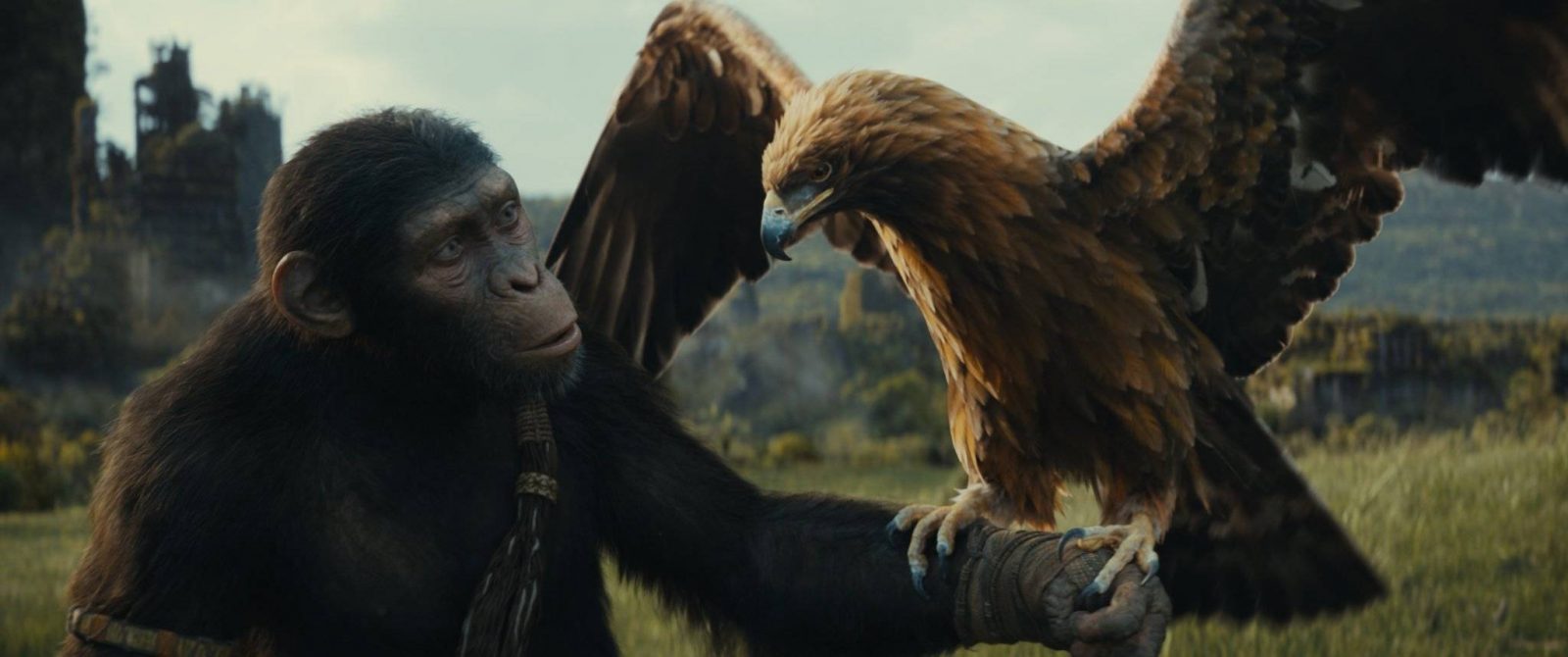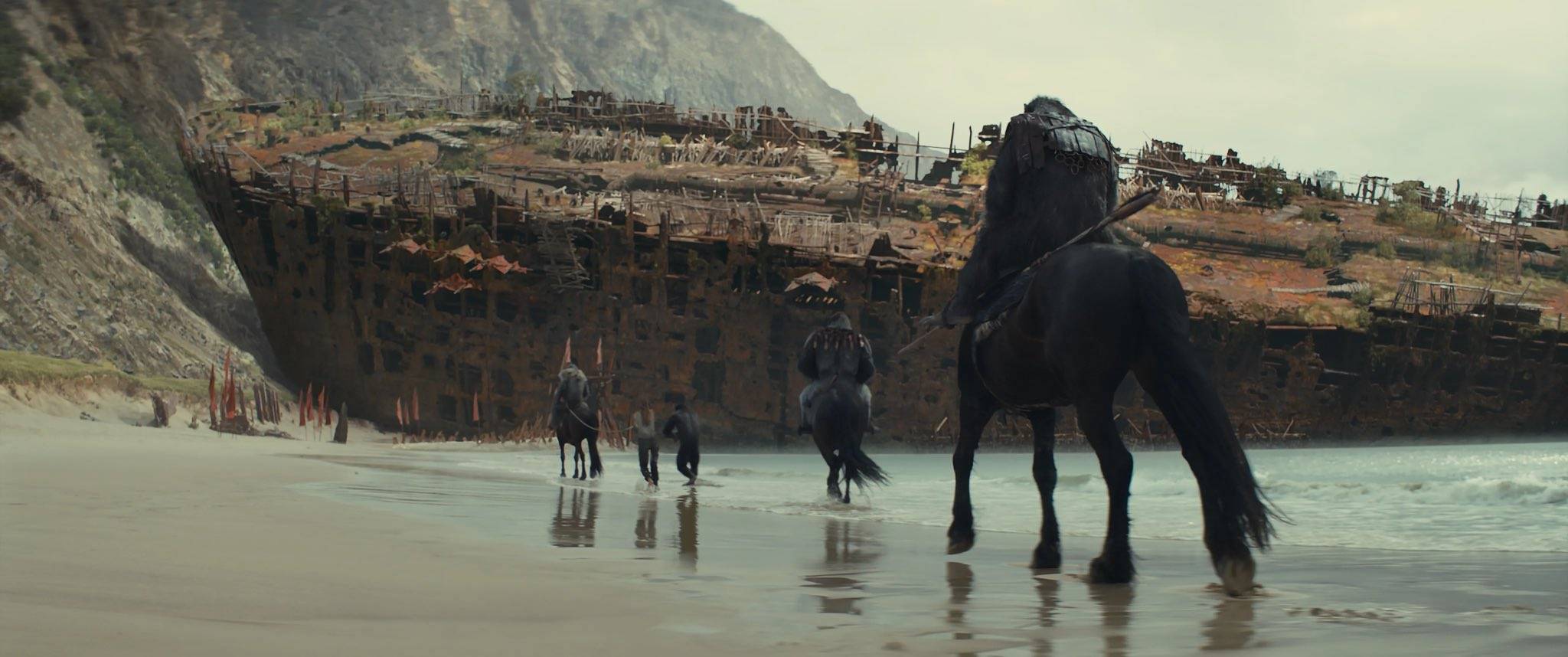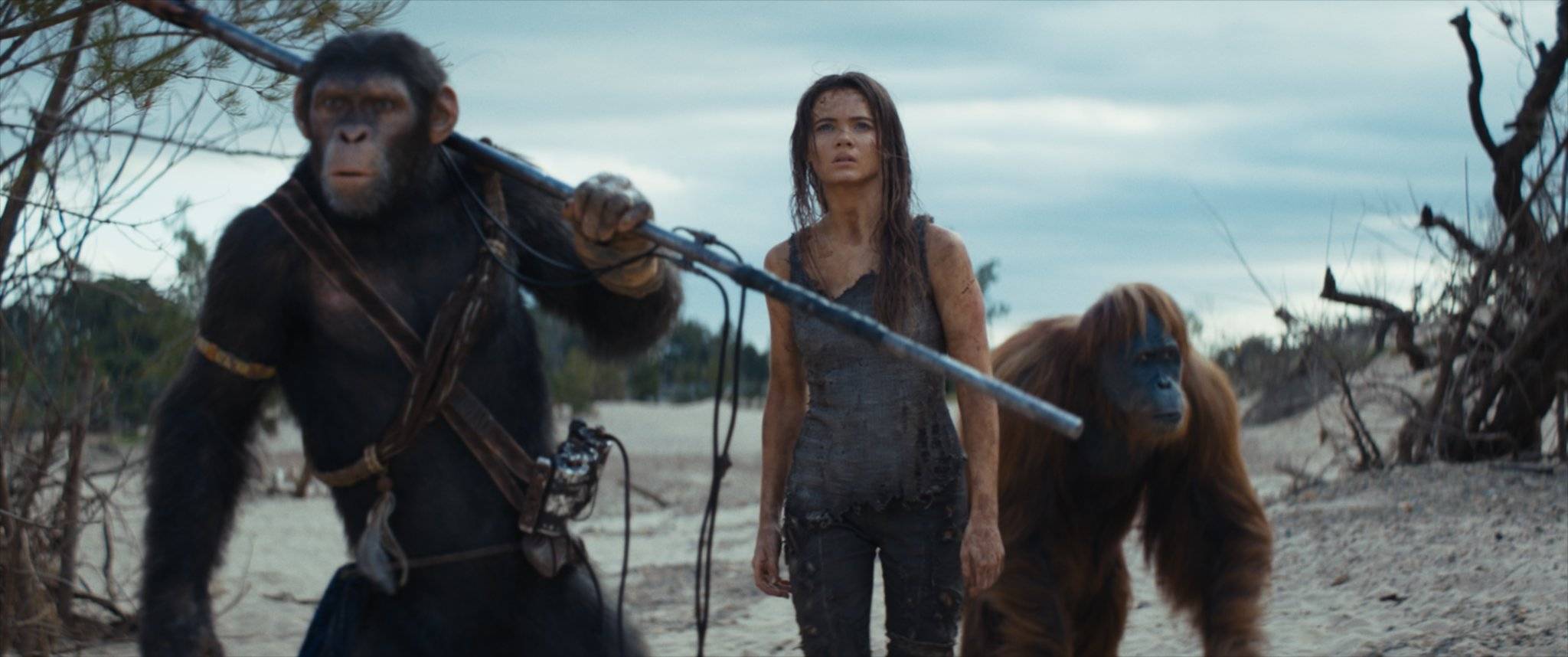Apes still strong in new ‘Kingdom’

Fifty-six years ago, the first “Planet of the Apes” movie came out. Armed with one of the all-timer twist endings, the Charlton Heston-starrer became a cultural milestone, one that has since been imitated, homaged and lampooned ad nauseam (including one of the best “Simpsons” episodes in the show’s 30-year history). After four sequels and one TV season, a questionable remake by Tim Burton appeared in 2001. Ten years after that, the prequel trilogy starring Andy Serkis as Caesar began with “Rise of the Planet of the Apes,” which modern audiences are more familiar with. The effects technology and Serkis’ portrayal of the intelligent ape had people campaigning for motion-capture (or “mocap”) performances to be considered seriously for awards season. The final two films particularly had a consistency of vision thanks to director Matt Reeves, who has since gone on to tackle the new Batman films with Robert Pattinson.
It is astonishing, then, that the franchise naysayers were too quick to dismiss as “the talking monkeys movie” has had such long legs, and a pretty great track record. All but two of the ten films in the series would handily be included in any “Best Movies of the Year” list, and yes, that is including the latest, “Kingdom of the Planet of the Apes.” The new film, meant to kick off a new trilogy, comes via director Wes Ball, who helmed the underappreciated “The Maze Runner” trilogy.
Emotional grounding “Kingdom” begins with the funeral rites of Caesar, the most important figure in Ape history, before dissolving to an unspecified time “many generations later.” It’s hundreds of years, and the passage of time opens new avenues of opportunity for storytelling. In the Eagle Clan, so named for their raising and taming of the titular birds, young Noa (Owen Teague) and his two best friends are preparing for a rite of passage, but an unfortunate encounter late at night leads a brutal clan to their peaceful village and they are taken prisoner. Noa, left for dead, awakens the next day to his burned village, alone and determined to rescue his people. So begins a long journey to track his enemies, where he finds some history and some companions along the way.

Ball and scriptwriter Josh Friedman wisely took the time to properly introduce the characters and milieu before dashing it with violence. The stakes and emotional grounding are clear when we meet the personalities in Noa’s village, from the children awaiting their return to the elders, which includes Noa’s father, the Master of Birds. When the antagonists arrive to raze the village, it is savage and ruthless. There is care and time taken for Noa’s emotional as well as literal journey: his trepidation at going beyond where he’s gone before, tempered by his determination to rescue his clan; his curiosity and wariness at meeting Raka (Peter Macon, “The Orville”), a hermit who teaches about Caesar’s life and lessons. Things take a fateful turn when they encounter a human they name Nova (Freya Allan, “The Witcher”). When they finally find the coastal clan of apes that took his people, Noa and company descend into an even more complicated situation.
Another surprising element in the talking-monkeys movies is how they contain some of Hollywood’s more cogent moral questions. The destructive nature of man, the redemption arc of some characters, the burdens of fate or lineage . this film even touches upon The Prisoner’s Dilemma. It’s also confident in not feeling the need to overexplain everything: Nova’s motivations, for example, are seen by the audience but not Noa. The development of humans’ skills remains unaddressed, perhaps saved for future installments.
Main villain The main villain, Proximus Caesar (Kevin Durand), has appropriated the name and legacy of Caesar for selfish ends. His character has his own intimidating charm, even if he is still a bully among bullies, a self-styled tyrant-savior. It’s a clever corruption of the main now-mythical figure from the last trilogy.

Having gone on about the story and its strengths, it’s because Wētā FX’s effects are so good that it’s natural to suspend disbelief and forget these are mostly CG creations on the screen. It’s ridiculous that the prequel trilogy never landed any Oscars for their work, but perhaps that won’t be the case here.
By the end, you feel like you’ve gone through a proper epic: part road movie, part coming-of-age, part uprising/rebellion, yet you know there is still more to come. There’s a bittersweet tinge at the last that doesn’t fail to remind the audience which of the two species pose a greater threat to the planet. With a strong beginning, the next chapters look promising.
















